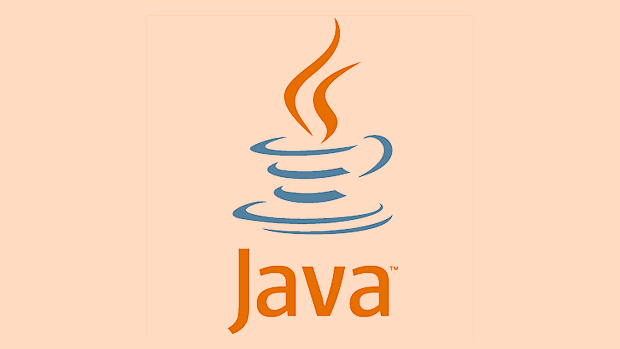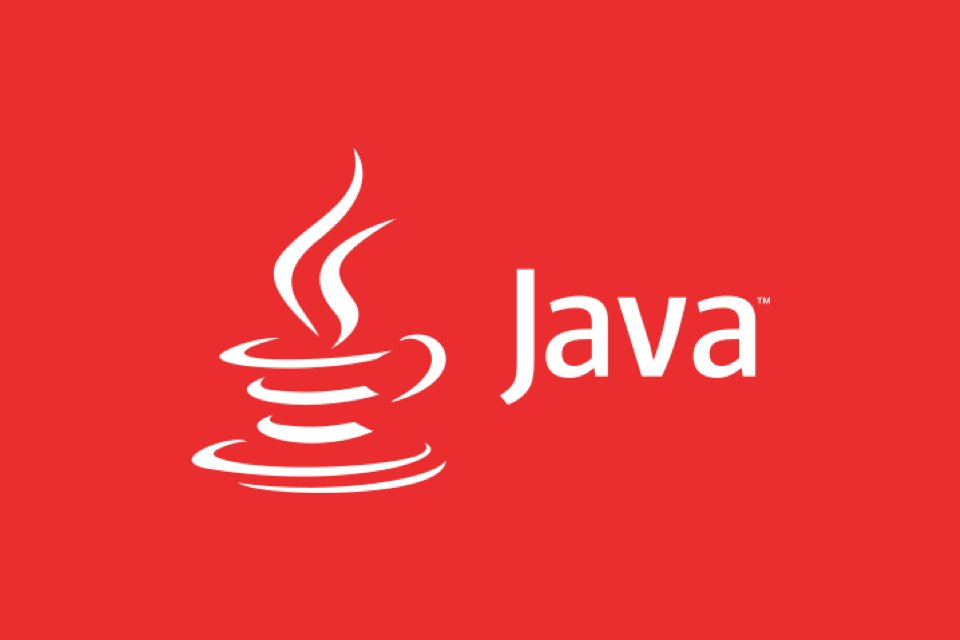Java pass by value or pass by reference?
Jul 11, 2025 am 02:56 AMJava is value passing. For basic types, the copy of the actual value is passed, and the modification within the method does not affect the external variables; for reference types, the copy of the reference address is passed, and modifying the object content within the method will affect the external object, but the reassignment reference is invalid. For example, modifying the int parameter of the changeValue method does not affect external variables; modifyList modifying the content of the list through reference copy; repointing to the new list in the reassignList does not affect external original reference. In development, try to reassign references within methods to change external objects, but modify the state by calling the object method.

Java is pass by value, not pass by reference.

Although objects in Java are operated by reference, when a method is passed, the reference itself is passed by value. That is to say, the modification of parameters inside the method will not affect the external variable itself.
Passing parameters in basic types and reference types in Java
In Java, variables are divided into basic types (such as int , double ) and reference types (such as objects, arrays):

- Basic type : The actual value is passed.
- Reference type : It is passed a copy of the object reference, not the object itself.
To give a simple example:
void changeValue(int x) {
x = 100;
}
int a = 10;
changeValue(a);
System.out.println(a); // Output is still 10 Here the value of a is copied to x , and the method internally changes x , which does not affect a .

Let's look at the reference type:
void modifyList(List<String> list) {
list.add("new item");
}
List<String> myList = new ArrayList<>();
modifyList(myList);
System.out.println(myList.size()); // Output 1 Although list is a value passed (the copy of the reference is passed), the two references point to the same object, so the modification will be reflected.
Why is Java not passed in reference?
Some people mistakenly believe that Java is a reference pass because the object's behavior looks like "passing a reference". But in fact, Java is always passed in value, but this "value" may be a numeric value of the basic type or a reference address of the object.
If you try to change the reference itself in the method, the outside will not change:
void reassignList(List<String> list) {
list = new ArrayList<>();
list.add("new list");
}
List<String> myData = new ArrayList<>();
reassignList(myData);
System.out.println(myData.isEmpty()); // Output true, myData or point to the original empty list This means that you just copied the list reference into the method and pointed to the new object within the method. The original reference myData is not affected.
Things to note in actual development
Understanding Java's argument transfer mechanism can help avoid some common mistakes:
- ? Attempt to reassign a reference object in a method to affect external variables - will not take effect.
- ? If you want the method to modify the object state, you can do it by calling the object's methods (such as setter or add method, etc.).
- ?? Modifying a collection or object attribute will affect all places holding references to the object.
For example, the following situations will take effect:
class Person {
String name;
}
void changeName(Person p) {
p.name = "Tom";
}
Person person = new Person();
changeName(person);
System.out.println(person.name); // Output Tom Because p.name = "Tom" changes the content of the object, not the reference itself.
Basically that's it. Java's parameter transfer mechanism is not complicated, but it is easily misunderstood. Understanding the difference between value passing and reference passing can help you write clearer and more stable code.
The above is the detailed content of Java pass by value or pass by reference?. For more information, please follow other related articles on the PHP Chinese website!

Hot AI Tools

Undress AI Tool
Undress images for free

Undresser.AI Undress
AI-powered app for creating realistic nude photos

AI Clothes Remover
Online AI tool for removing clothes from photos.

Clothoff.io
AI clothes remover

Video Face Swap
Swap faces in any video effortlessly with our completely free AI face swap tool!

Hot Article

Hot Tools

Notepad++7.3.1
Easy-to-use and free code editor

SublimeText3 Chinese version
Chinese version, very easy to use

Zend Studio 13.0.1
Powerful PHP integrated development environment

Dreamweaver CS6
Visual web development tools

SublimeText3 Mac version
God-level code editing software (SublimeText3)
 How to handle transactions in Java with JDBC?
Aug 02, 2025 pm 12:29 PM
How to handle transactions in Java with JDBC?
Aug 02, 2025 pm 12:29 PM
To correctly handle JDBC transactions, you must first turn off the automatic commit mode, then perform multiple operations, and finally commit or rollback according to the results; 1. Call conn.setAutoCommit(false) to start the transaction; 2. Execute multiple SQL operations, such as INSERT and UPDATE; 3. Call conn.commit() if all operations are successful, and call conn.rollback() if an exception occurs to ensure data consistency; at the same time, try-with-resources should be used to manage resources, properly handle exceptions and close connections to avoid connection leakage; in addition, it is recommended to use connection pools and set save points to achieve partial rollback, and keep transactions as short as possible to improve performance.
 How to work with Calendar in Java?
Aug 02, 2025 am 02:38 AM
How to work with Calendar in Java?
Aug 02, 2025 am 02:38 AM
Use classes in the java.time package to replace the old Date and Calendar classes; 2. Get the current date and time through LocalDate, LocalDateTime and LocalTime; 3. Create a specific date and time using the of() method; 4. Use the plus/minus method to immutably increase and decrease the time; 5. Use ZonedDateTime and ZoneId to process the time zone; 6. Format and parse date strings through DateTimeFormatter; 7. Use Instant to be compatible with the old date types when necessary; date processing in modern Java should give priority to using java.timeAPI, which provides clear, immutable and linear
 Comparing Java Frameworks: Spring Boot vs Quarkus vs Micronaut
Aug 04, 2025 pm 12:48 PM
Comparing Java Frameworks: Spring Boot vs Quarkus vs Micronaut
Aug 04, 2025 pm 12:48 PM
Pre-formanceTartuptimeMoryusage, Quarkusandmicronautleadduetocompile-Timeprocessingandgraalvsupport, Withquarkusoftenperforminglightbetterine ServerLess scenarios.2.Thyvelopecosyste,
 Understanding Network Ports and Firewalls
Aug 01, 2025 am 06:40 AM
Understanding Network Ports and Firewalls
Aug 01, 2025 am 06:40 AM
Networkportsandfirewallsworktogethertoenablecommunicationwhileensuringsecurity.1.Networkportsarevirtualendpointsnumbered0–65535,withwell-knownportslike80(HTTP),443(HTTPS),22(SSH),and25(SMTP)identifyingspecificservices.2.PortsoperateoverTCP(reliable,c
 How does garbage collection work in Java?
Aug 02, 2025 pm 01:55 PM
How does garbage collection work in Java?
Aug 02, 2025 pm 01:55 PM
Java's garbage collection (GC) is a mechanism that automatically manages memory, which reduces the risk of memory leakage by reclaiming unreachable objects. 1.GC judges the accessibility of the object from the root object (such as stack variables, active threads, static fields, etc.), and unreachable objects are marked as garbage. 2. Based on the mark-clearing algorithm, mark all reachable objects and clear unmarked objects. 3. Adopt a generational collection strategy: the new generation (Eden, S0, S1) frequently executes MinorGC; the elderly performs less but takes longer to perform MajorGC; Metaspace stores class metadata. 4. JVM provides a variety of GC devices: SerialGC is suitable for small applications; ParallelGC improves throughput; CMS reduces
 Using HTML `input` Types for User Data
Aug 03, 2025 am 11:07 AM
Using HTML `input` Types for User Data
Aug 03, 2025 am 11:07 AM
Choosing the right HTMLinput type can improve data accuracy, enhance user experience, and improve usability. 1. Select the corresponding input types according to the data type, such as text, email, tel, number and date, which can automatically checksum and adapt to the keyboard; 2. Use HTML5 to add new types such as url, color, range and search, which can provide a more intuitive interaction method; 3. Use placeholder and required attributes to improve the efficiency and accuracy of form filling, but it should be noted that placeholder cannot replace label.
 Comparing Java Build Tools: Maven vs. Gradle
Aug 03, 2025 pm 01:36 PM
Comparing Java Build Tools: Maven vs. Gradle
Aug 03, 2025 pm 01:36 PM
Gradleisthebetterchoiceformostnewprojectsduetoitssuperiorflexibility,performance,andmoderntoolingsupport.1.Gradle’sGroovy/KotlinDSLismoreconciseandexpressivethanMaven’sverboseXML.2.GradleoutperformsMaveninbuildspeedwithincrementalcompilation,buildcac
 go by example defer statement explained
Aug 02, 2025 am 06:26 AM
go by example defer statement explained
Aug 02, 2025 am 06:26 AM
defer is used to perform specified operations before the function returns, such as cleaning resources; parameters are evaluated immediately when defer, and the functions are executed in the order of last-in-first-out (LIFO); 1. Multiple defers are executed in reverse order of declarations; 2. Commonly used for secure cleaning such as file closing; 3. The named return value can be modified; 4. It will be executed even if panic occurs, suitable for recovery; 5. Avoid abuse of defer in loops to prevent resource leakage; correct use can improve code security and readability.






